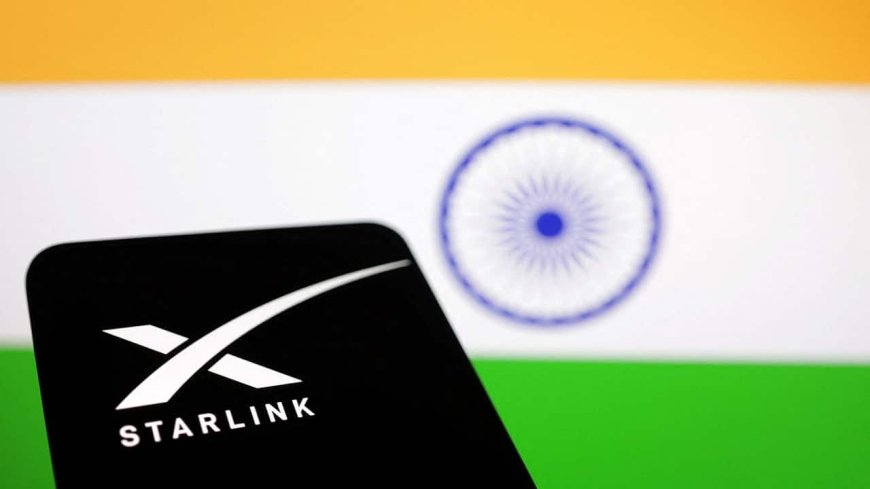Starlink Receives Approval to Launch Satellite Broadband in India
Elon Musk's Starlink has been granted final approval by India's space regulator to begin commercial satellite broadband operations in the country. The approval includes authorization to operate specific satellite constellations and frequency bands until 2030.

Elon Musk’s Starlink has received approval from India’s space regulator, the Indian National Space Promotion and Authorisation Centre (IN-SPACe), clearing the last regulatory hurdle to kick off commercial satellite broadband operations in the country.
India’s space regulator on July 8 granted Starlink authorisation to operate its non-Indian GSO and NGSO satellite constellation, specifically the Starlink Gen1 constellation for providing satellite broadband capacity over India. The authorisation is till July 7, 2030, as per information available on the IN-SPACe website.
As part of the approval, IN-SPACe has also cleared specific frequency bands for use: For gateway beams, Starlink is authorised to operate in the uplink bands of 27.5–29.1 GHz and 29.5–30 GHz, and downlink bands of 17.8–18.6 GHz and 18.8–19.3 GHz, using both right-hand and left-hand circular polarisation. For user beams, the approved bands include 14.0–14.5 GHz uplink (LHCP) and 10.7–12.7 GHz downlink (RHCP).
This nod comes just weeks after Starlink secured its Global Mobile Personal Communication by Satellite (GMPCS) licence from the Department of Telecommunications (DoT), positioning it as the third player—after Eutelsat OneWeb and Reliance Jio—to gain full regulatory approval for satellite internet services in India.
With the green light in place, Starlink must now acquire spectrum from the government, establish ground infrastructure, and demonstrate compliance with national security requirements through trials and testing. As part of its rollout plan, the company intends to establish at least three gateway stations nationwide.
The Department of Telecommunications (DoT) is also set to grant trial spectrum to Starlink to complete security compliance demonstrations.
The DoT is expected to soon finalise rules and pricing for administrative satellite spectrum allocation, based on recent recommendations from the Telecom Regulatory Authority of India (TRAI).
Queries sent to Starlink and IN-SPACe remained unanswered at the time of publishing.
Starlink has already signed its first commercial agreements with VSAT providers in India, signaling its intention to start monetising enterprise and government broadband services even before satellite spectrum allocation is finalised, Moneycontrol recently reported.
With these partnerships, Starlink aims to build a presence in both the B2B and B2G segments while laying the groundwork for a future consumer-facing rollout. Sources said the company could soon begin offering direct-to-consumer satellite connections via its website, although retail pricing strategies are still being finalised.
Starlink’s biggest rival, Amazon’s Project Kuiper, is still awaiting regulatory approvals from both the DoT and IN-SPACe, despite having completed all security and operational checks. Its application is expected to be reviewed in the upcoming inter-ministerial standing committee meeting.
Kuiper is planning a large-scale satcom rollout in India, with proposals for 10 gateway stations and two points of presence in Mumbai and Chennai—far more than Starlink’s initial three. By comparison, Eutelsat-OneWeb and Jio-SES each have two gateways.
Kuiper, which has launched 27 low-Earth orbit (LEO) satellites as part of its global broadband ambitions, has yet to secure coverage over India. Both Kuiper and Starlink are planning to operate across enterprise, government, and consumer segments—setting up a three-way race in India’s emerging satcom market.
According to the source: Moneycontrol.
What's Your Reaction?
 Like
0
Like
0
 Dislike
0
Dislike
0
 Love
0
Love
0
 Funny
0
Funny
0
 Angry
0
Angry
0
 Sad
0
Sad
0
 Wow
0
Wow
0














































































































































































